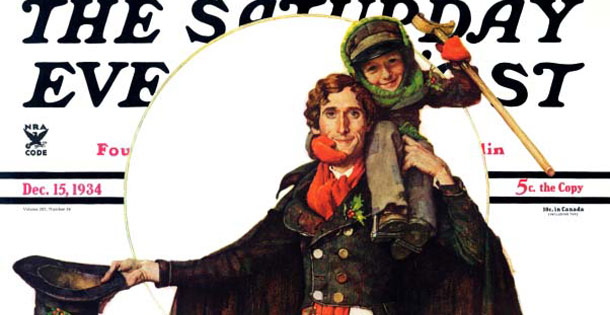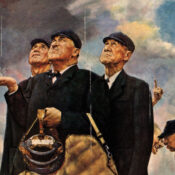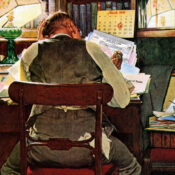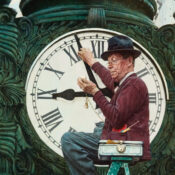In 1920, Norman Rockwell approached George Horace Lorimer, the Post editor at the time, with a series of Christmas covers spanning an entire decade. Typically, Lorimer would not have been in favor of such a committed move but the theme of these covers centered on the stories of Charles Dickens. Rockwell happened to know his boss was a huge Dickens fan and even went so far as to dedicate the first picture to Lorimer; a bold and heartfelt move, for sure. Thanked with a handshake from his boss, Rockwell trailed ahead with the green light and brought forth this famous Christmas series.
Merrie Christmas
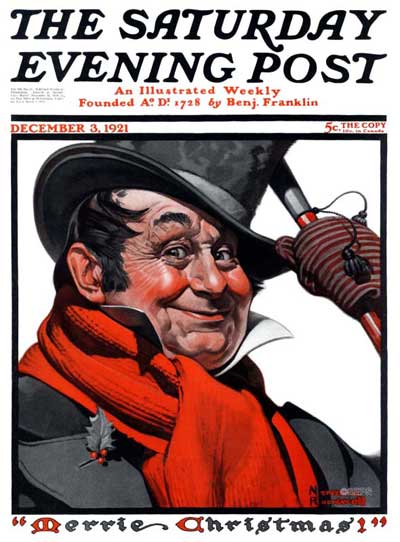
Norman Rockwell
December 3, 1921
Here we have the first picture of the Dickensian series. As previously mentioned, this jocular man wearing a 19th-century hat and holding a cane was dedicated to the Post editor at the time, George Horace Lorimer.
Christmas Trio
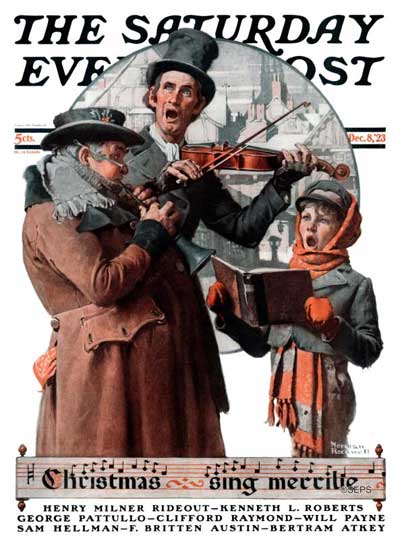
Norman Rockwell
December 8, 1923
Dickens’ portrayal of Victorian society in London captivated Rockwell. He especially admired the street-corner musicians, talented ragamuffins who depended on the kindness of strangers. Interestingly enough though, in spite of how convincing their talent might appear, not one of the models could sing or play!
Couple Dancing Under Mistletoe
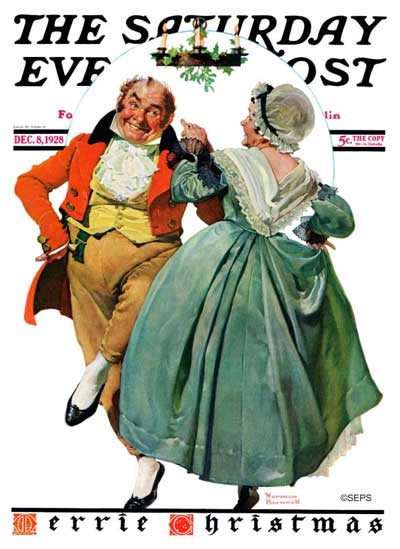
Norman Rockwell
December 8, 1928
The light of Christmas spirit here could enliven even the gloomiest heart. Inspiration for this cover came from the scene in A Christmas Carol when Mr. Fezziwig, the benevolent master of young Ebenezer Scrooge, shows his guests how to dance.
Coachman with Whip
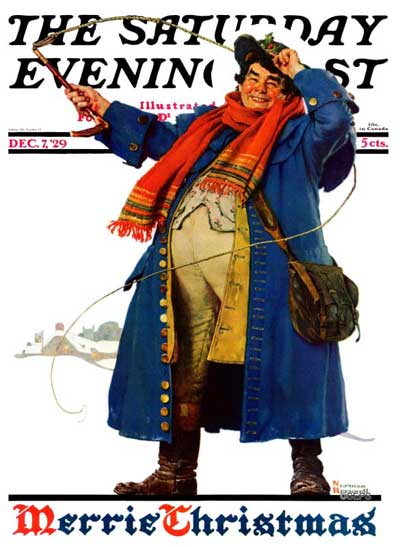
Norman Rockwell
December 7, 1929
Although this joyful taskmaster appears to be without a care in the world, America was heading for troubled times. The stock market crashed on October 29, 1929. Some were unsure if the magazine would survive the downtrodden economy, but Lorimer believed it would. Sure enough, when the issue hit newsstands people lined up to buy it with their precious nickels in hand.
Merrie Christmas—Norman Rockwell
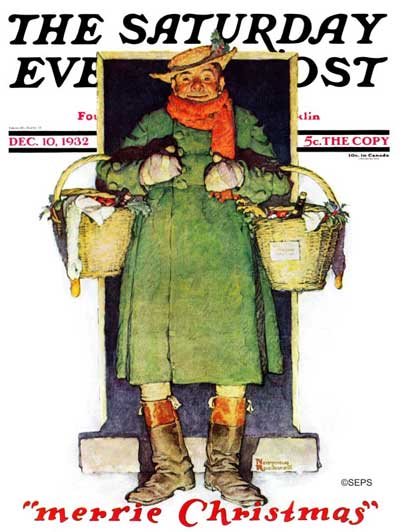
Norman Rockwell
December 10, 1932
Inspired by the generosity of his neighbors after the birth of his son a year prior, Rockwell depicted a Dickensian character cradling two heaping baskets of food. Lorimer signed off on the sketch, undoubtedly moved by the image of plenty as America still faced the turmoil of the Great Depression.
God Bless Us Everyone—Norman Rockwell
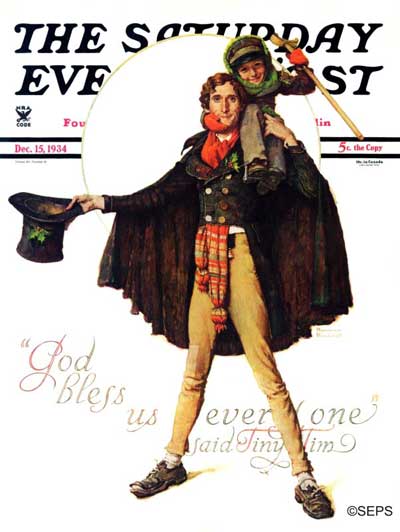
Norman Rockwell
December 15, 1934
Tiny Tim’s feature on the Post hit stands one day before the release date of the movie A Christmas Carol. Although competitors of The Saturday Evening Post had a name for the magazine’s uncanny cover timing — “Post Luck!” — this didn’t happen just by chance. Lorimer caught wind of when the movie would appear on the big screen and contacted Rockwell 11 months before the issue’s publication date to propose this cover.
Under the Mistletoe—Norman Rockwell
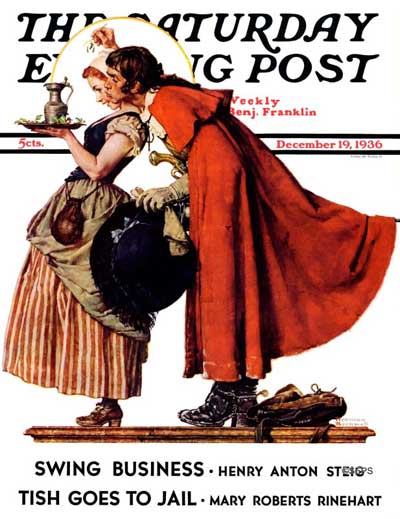
Norman Rockwell
December 19, 1936
Here, the story of a traveling cavalier at a friendly tavern, armed with an even friendlier sprig of mistletoe, unfolds…
Merrie Christmas
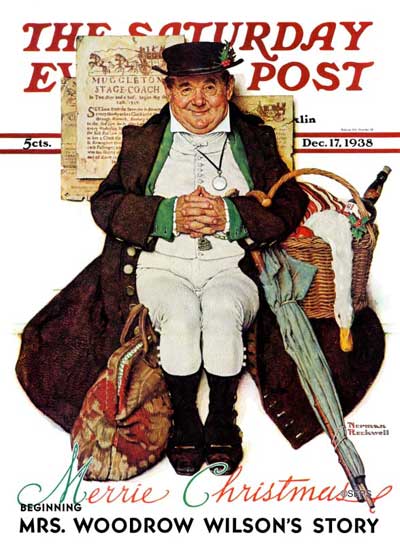
Norman Rockwell
December 17, 1938
Are you beginning to notice a trend in the titles? With instructions from the new Post editor to represent Dickens’ stories literally, Rockwell had to ditch his creative interpretations. This third Merrie Christmas cover depicts Pickwick patiently waiting for the Muggleton Stagecoach.
Become a Saturday Evening Post member and enjoy unlimited access. Subscribe now
